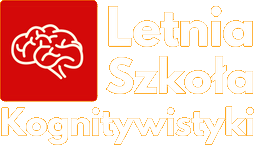Celem tej prezentacji jest przedstawienie aktualnych dyskusji dotyczących natury i dynamiki zaburzeń psychicznych w kontekście filozofii psychiatrii i nauk kognitywnych. W trakcie prezentacji omówione zostaną specyficzne cechy podejścia ucieleśnionego i enaktywnego oraz ich związek z dotychczasowymi koncepcjami zaburzeń psychicznych oraz badaniami nad ucieleśnieniem inspirowanymi myślą Merleau-Ponty’ego i koncepcją metabolizmu ucieleśnionego autorstwa Antoniego Kępińskiego. Przedstawiony zostanie wielopoziomowy i kompleksowy model psychopatologii, który traktuje zaburzenie jako wynik procesu nadawania sensu (sense-making) i transformacji doświadczenia psychopatologicznego, uwzględniając różne poziomy zaburzeń (fizjologiczny, psychologiczny, społeczny, egzystencjalny). Szczególną uwagę poświęcono konsekwencjom tego modelu dla badań dotyczących diagnozy, przyczynowości, terapii oraz powrotu do zdrowia.
—
Mental Disorders in the Light of the Embodied Approach and Enactive Psychiatry
The purpose of this presentation is to discuss the current debates surrounding the nature and dynamics of mental disorders within the fields of philosophy of psychiatry and cognitive science. Within this presentation, we will explore the specificities of the embodied and enactive approaches and their relationship to existing conceptions of mental disorders, as well as examine research on embodiment inspired by the ideas of Merleau-Ponty and the concept of embodied metabolism proposed by Antoni Kępiński. We will present a multidimensional and comprehensive model of psychopathology that views disorder as a result of the sense-making process and the transformation of psychopathological experiences. This model takes into account various levels of disturbance, including physiological, psychological, social, and existential factors. Special attention will be given to the implications of this model for diagnosis, causality, therapy, and the journey towards recovery.
